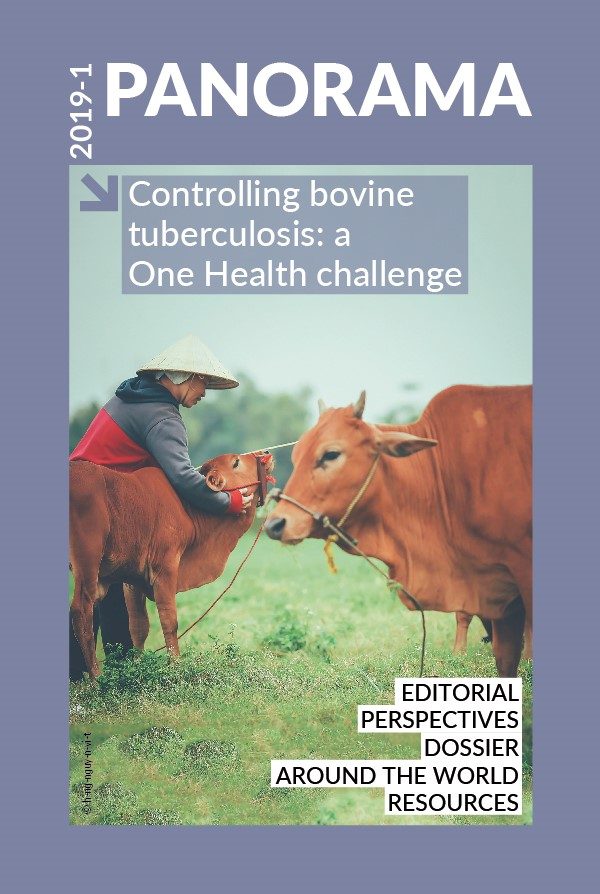Dossier Posted on 2021-05-26 10:33:46
The socio-economic costs of bovine tuberculosis
Keywords
Authors
Antonino Caminiti, Chargé de mission, Science Department, World Organisation for Animal Health (OIE).
Costs in developed countries
In developed countries, where the prevalence of bTB is generally low, the direct and indirect costs of bTB are mainly related to trade barriers for live animals and animal products, as well as the financial costs of implementing compulsory bTB eradication programmes. Studies suggested that the majority of the cost of eradication (about 80%) is due to veterinarians performing skin tests [1]. Eradication costs can be so large that some authors have questioned the benefits of such interventions [2]. Conversely, others believe that, when all the benefits are taken into account, including societal benefits, the eradication of bTB is economically viable [3].
Other kinds of costs, such as intangible costs, are rarely assessed in scientific studies, even if their impact can be devastating for rural communities and the farming industry. These costs include, for instance, the impact on the country’s reputation, consumer loss of trust and adverse market reactions.
Costs in developing countries
In developing countries, the prevalence of bTB in animals and humans is high because of deficiencies in the implementation of preventive measures (e.g. the scarceness of pasteurisers and lack of controls in animals and meat, due to financial constraints). The costs of bTB are mainly related to livestock production losses, including increased mortality and lower milk and meat production. Estimates of such losses have been produced for countries with a large livestock population, such as Ethiopia [4].
Conclusions
Most of the time, cost evaluations focus primarily on livestock production losses. There is a need for comprehensive studies to estimate the global burden of this disease, including its full cost on society.
http://dx.doi.org/10.20506/bull.2019.1.2916
References
- Caminiti A., Pelone F., Battisti S., Gamberale F., Colafrancesco R., Sala M., La Torre G., Della Marta U. & Scaramozzino P. (2016). – Tuberculosis, brucellosis and leucosis in cattle: a cost description of eradication programmes in the region of Lazio, Italy. Transbound. Emerg. Dis., 64 (5), 1493–1504. https://doi.org/10.1111/tbed.12540.
- Torgerson P.R. & Torgerson D.J. (2010).– Public health and bovine tuberculosis: what’s all the fuss about? Trends Microbiol., 18 (2), 67–72. https://doi.org/10.1016/j.tim.2009.11.002.
- Caminiti A., Pelone F., LaTorre G., De Giusti M., Saulle R., Mannocci A., Sala M., Della Marta U. & Scaramozzino P. (2016). – Control and eradication of tuberculosis in cattle: a systematic review of economic evidence. Vet. Rec., 179, 70–75. http://dx.doi.org/10.1136/vr.103616.
- Azami H.Y. & Zinsstag J. (2018). – Economics of bovine tuberculosis: a One Health issue. In Bovine tuberculosis (M. Chambers, S. Gordon, F. Olea-Popelka & P. Barrow, eds.), Chapter 3, 31–42. http://dx.doi.org/10.1079/9781786391520.0031.










